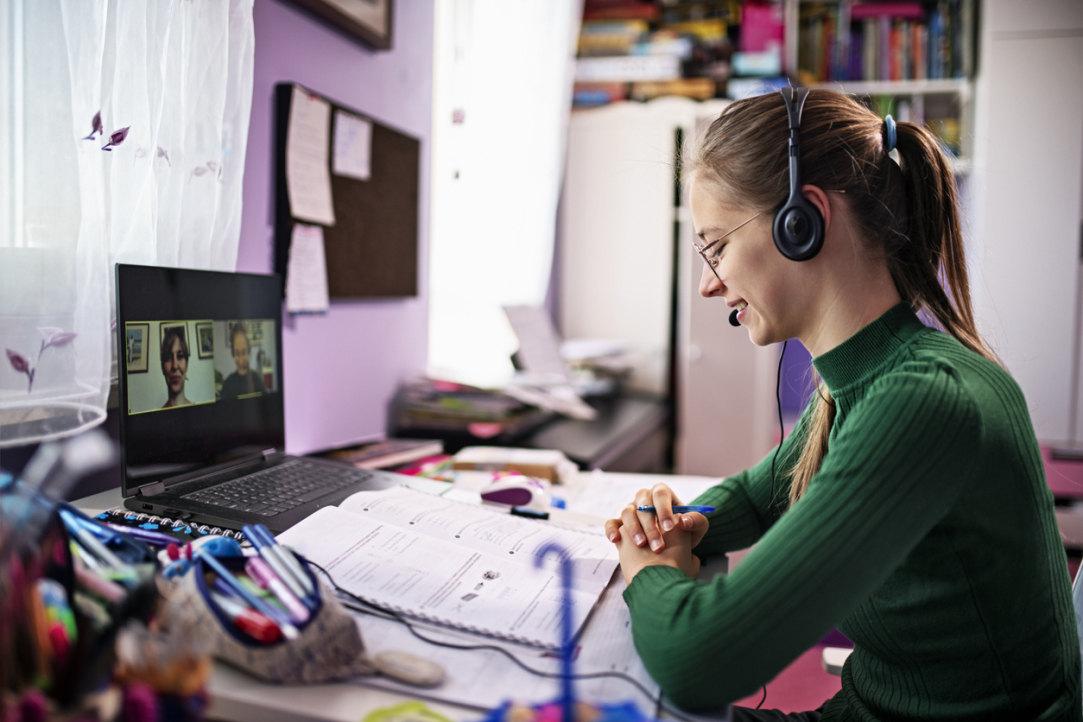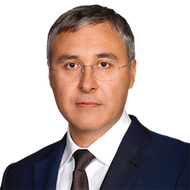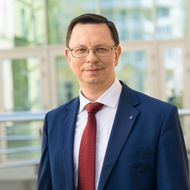Universities’ Pandemic Experience to Be Studied at the International Level

Russian and international researchers should intensify their joint efforts to analyze the changes in higher education over the past year and a half. Speaking at a round table held in the International Multimedia Centre of the Rossiya Segodnya (Russia Today) news agency, HSE Rector Nikita Anisimov suggested that this work be done as part of the International Observatory for Higher Education Transformations—a global research programme launched by HSE University and the Polytechnic University of Milan.
The round table focused on a study entitled ‘Quality of Education in Russian Universities: What We Learned During the Pandemic’. Participants included the Russian Minister of Science and Higher Education Valery Falkov and the rectors of leading Russian universities, including Eduard Galazhinsky (Tomsk State University), Nikita Anisimov (HSE University), Viktor Koksharov (Ural Federal University), and Igor Remorenko (Moscow City University). Dmitry Pumpyansky, the founder of the Sinara Group, joined the event as a representative of employers.

Valery Falkov, Minister of Science and Higher Education of the Russian Federation
‘At the beginning of this year, we asked ourselves a difficult question: “What is happening to the quality of education?” The quality of education was generally believed to have deteriorated dramatically. However, as university representatives, we understand that science is supposed to provide an objective answer.’
This resulted in an international study involving the best researchers looking into higher education from 13 major universities. The research was based on sociological surveys that cover 36,000 students (11% of whom were from outside Russia), 24,000 teachers, and, for the first time, 800 parents.
One of the main conclusions made was that it would be impossible for universities to switch to fully remote teaching (except for some online programmes), and that blended education will be the new normal. This format would ensure the appropriate level of education, Mr. Falkov believes.
The study shows that most students adapted to online education and appreciated its advantages. Nikita Anisimov says that about half of the respondents would opt for a hybrid format that combines offline and online studies.

Nikita Anisimov, HSE University Rector
This is a significant change compared to last year. Students mainly appreciate things like the accessibility of textbooks, IT support, the online education environment, and the opportunity to choose courses. Satisfaction in these areas rose to 80%. However, it should be noted that students were least satisfied with the conditions for implementing student initiatives, participating in university life, and taking part in independent activities on campus. Only 62–66% of respondents were happy about these areas. This means that universities should pay significant attention to students’ soft skills, which are of great importance.
The HSE Rector also spoke about Teaching Quality Assessment (TQA), a measure introduced by HSE University to gather student feedback. Over 90% of HSE students take part in TQA four times a year. ‘The recent TQA results show that teachers’ average ratings were no worse after the transition to online study,’ said Mr. Anisimov. Problem areas included research work that can only be done using laboratory equipment, an issue faced by natural science faculties and engineering departments at HSE University.
Another conclusion presented by the researchers at the round table was that university infrastructure plays a critical role in the quality of education. Major universities managed to strengthen their position in this regard. They have become agents of new technologies in education and stakeholders of the EdTech market, shifting from data collection to data management, explained Eduard Galazhinsky.
Diversified research centres played an increasingly important role during the pandemic. They were able to collect and interpret empirical data for use in forecasting. Eduard Galazhinsky points out that Russian researchers have done much more than their international colleagues to understand what has happened to higher education since March 2020. Europe only conducted a number of isolated studies, while Russia was able to undertake a great deal of work by coordinating the efforts of researchers from different universities.
Nikita Anisimov suggested that further international research be conducted as part of the International Observatory for Higher Education Transformations—a global research programme launched by HSE University and the Polytechnic University of Milan. Among the founders of the programme are the universities of Toronto, Porto, Oxford, Beijing, Boston, and Berkley.
According to the HSE Rector, the Observatory is an association of experts who conduct research on higher education. They study the internalization, management and financing of universities, as well as student expertise, digitization, and the education system at large.
‘We need to assess the situation not only in Russia, but across the globe. The pandemic knows no borders, and countries are facing different pandemic-related problems, be it the quality of education or young people’s willingness to adopt new learning formats. Much will depend on how effectively we are able to shift to blended education, because in twenty years’ time, the economy will be shaped by those studying at university now,’ said Mr. Anisimov.
See also:
CFA Institute Confirms Partner Status of Two HSE Programmes
CFA Institute, an international organization that unites tens of thousands financial experts from all over the world, has confirmed the partner status of the Financial Analyst Master’s programme and the Investment Management MBA programme, both of which are taught at the HSE Banking Institute.
90%
of Russian families are generally satisfied with the quality of the education that their children receive in universities.
81%
of parents whose children study in educational institutions are satisfied with the quality of their education.


